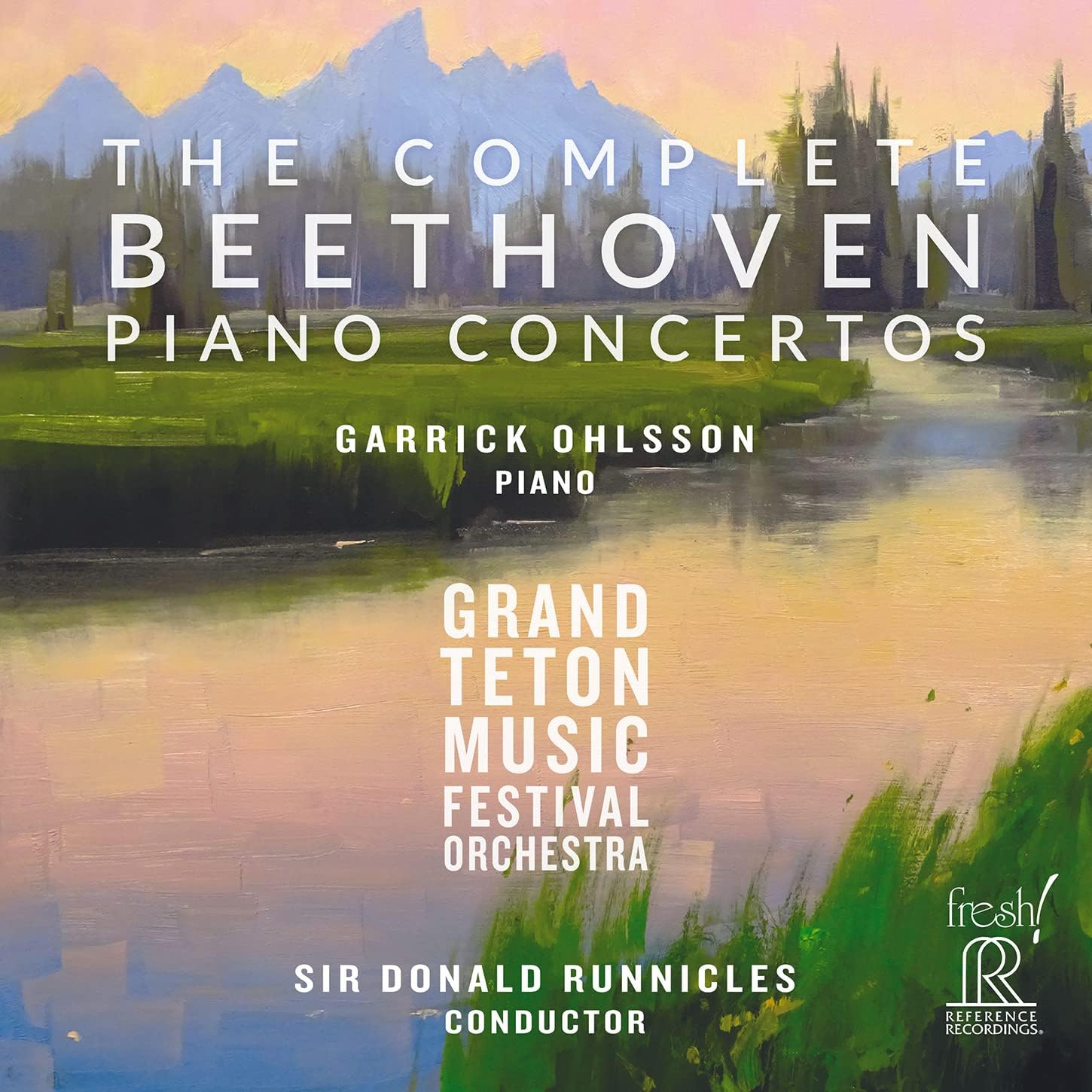 Beethoven: Piano Concertos 1-5 Garrick Ohlsson (piano), Grand Teton Music Festival Orchestra/Sir Donald Runnicles (Reference Recordings)
Beethoven: Piano Concertos 1-5 Garrick Ohlsson (piano), Grand Teton Music Festival Orchestra/Sir Donald Runnicles (Reference Recordings)
This set would be an artistic treat had it been captured onto a couple of C90 cassettes with a boombox. Instead, Garrick Ohlsson’s Beethoven concerto cycle was taped over a week in July 2022 in Walk Festival Hall, a medium-sized wooden venue in a small Wyoming village, Sir Donald Runnicles conducting a festival orchestra drawing its members from elite ensembles in the US and Europe. There’s an interesting booklet essay from producer Vic Muenzer outlining exactly how the recordings were made (the gist of which seems to be: find a good hall and use decent microphones, strategically positioned), and the results are impressive even by this label’s high standards. There’s a palpable bloom and warmth to the sound, Ohlsson’s deft rhythmic sense ensuring that things never feel complacent. Take the effervescent finale to the first concerto, the interplay between orchestral winds and soloist perfectly judged. Concerto No. 2 is another treat, with ear-tickling string playing in the introduction, Runnicles showing us Beethoven’s debt to Mozart while hinting at where he’d end up as a mature composer – some of the harmonic gear changes still sound startling.
Concerto No. 3 is a very different beast, Runnicles and Ohlsson relishing the first movement’s grandeur without sacrificing the wit. It’s difficult not to smile at Ohlsson’s playing at the start of the development section, or at the way Runnicles gets his flute, oboe and bassoon soloists to sing out over the piano line. The “Largo” is rapt and contemplative, the finale’s rondo theme a winning blend of perkiness and severity. Concerto No. 4’s quietly radical first movement is exquisite here, the orchestral textures full of light and colour after No. 3’s glowering C minor. Runnicles makes the slow movement’s string interjections sound like angry recitatives, and he and Ohlsson give us a finale full of balletic grace. I’ve never found No. 5 as interesting as its two predecessors, but there’s much to enjoy in this performance: time stands still in Ohlsson’s slow movement and the 6/8 finale skips along, timpani nicely audible before the final bars. As a bonus, there’s the overture to The Creatures of Prometheus. My new favourite Beethoven Piano Concertos set, then. Do investigate – it might become yours too.
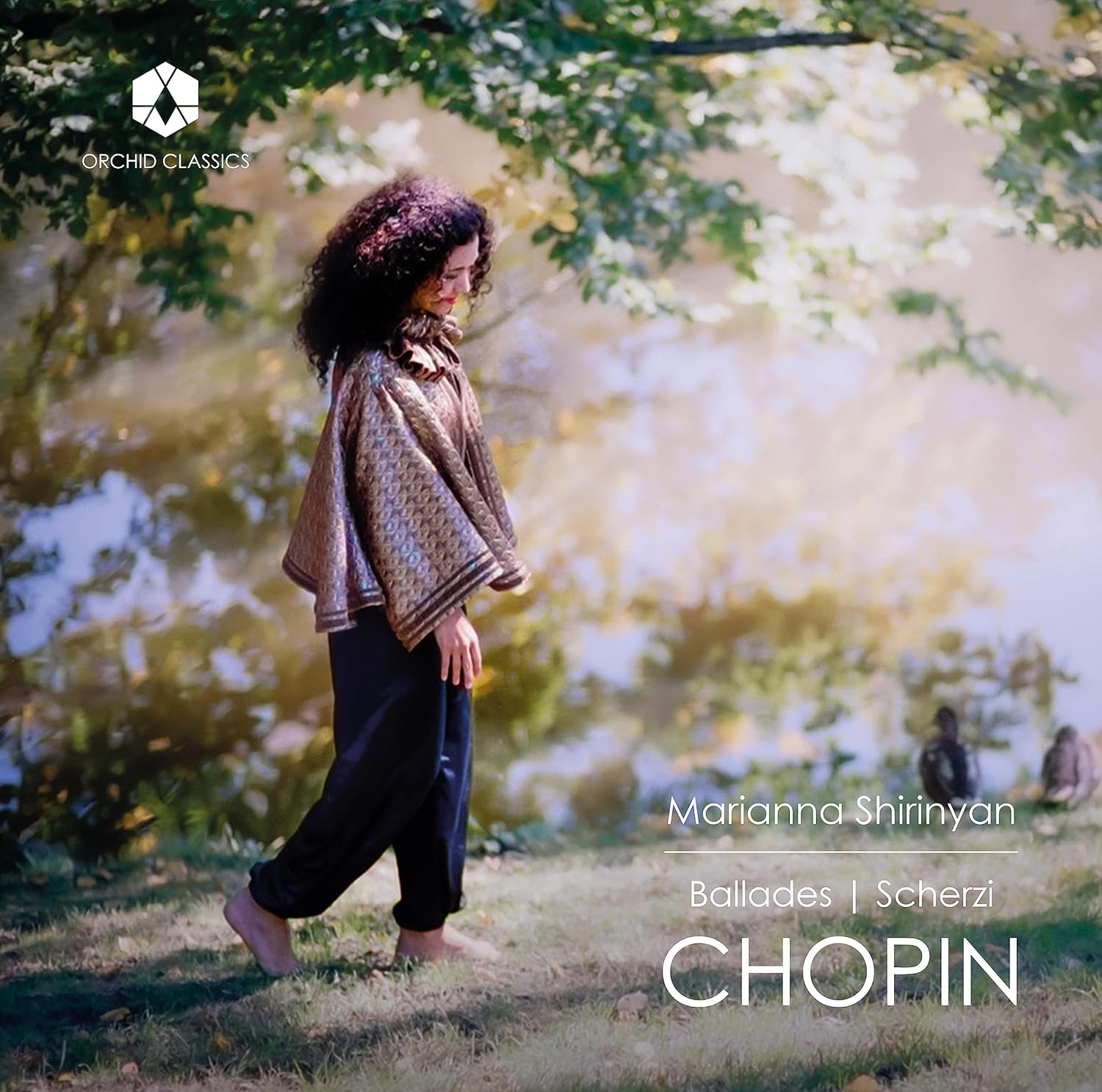 Chopin Ballades & Scherzos Marianna Shirinyan (Orchid)
Chopin Ballades & Scherzos Marianna Shirinyan (Orchid)
Chopin Complete Mazurkas vol.2 Peter Jablonski (Ondine)
I hadn’t come across pianist Marianna Shirinyan prior to hearing this album of Chopin Ballades and Scherzos. She is Armenian born but lives in Denmark, and I rapidly got diverted down a rabbit-hole of her other recordings: excellent Niels Gade, Rachmaninov two-piano music and a revelatory album, out this year, of lieder by Alma Mahler. All highly recommended, as is the one at hand here. I’ve always had a soft spot for Chopin, from fumbling my way through various Impromptus and Nocturnes as a teenager. I was never remotely good enough to get anywhere near the Ballades, but they were always for me the summit of Mount Chopin. And Marianna Shirinyan is quite the mountaineer.
In the first Ballade she is suitably monumental and quixotic, but also with a pleasingly no-nonsense cutting to the chase. There is lyrical cantabile, there is heft in the big moments. Number two is probably my favourite, sunnier, its folksong like opening melody played with simplicity and directness. Again, no frills, but plenty to enjoy. Likewise the third, a favourite of Schumann’s, with its music-box triple-time tune that I love so much, cranking into life here then building into something tumultuous. I know the Scherzos much less well. They are substantial pieces, three of the four in minor keys, a long way from the tradition of the scherzo as lightweight and good-humoured. Like the Ballades, they were not conceived of as a set and carry separate opus numbers, but Shirinyan binds them together thoughtfully, the fourth representing something of a relaxation after the fire of the first three, the severe technical difficulties worn lightly.
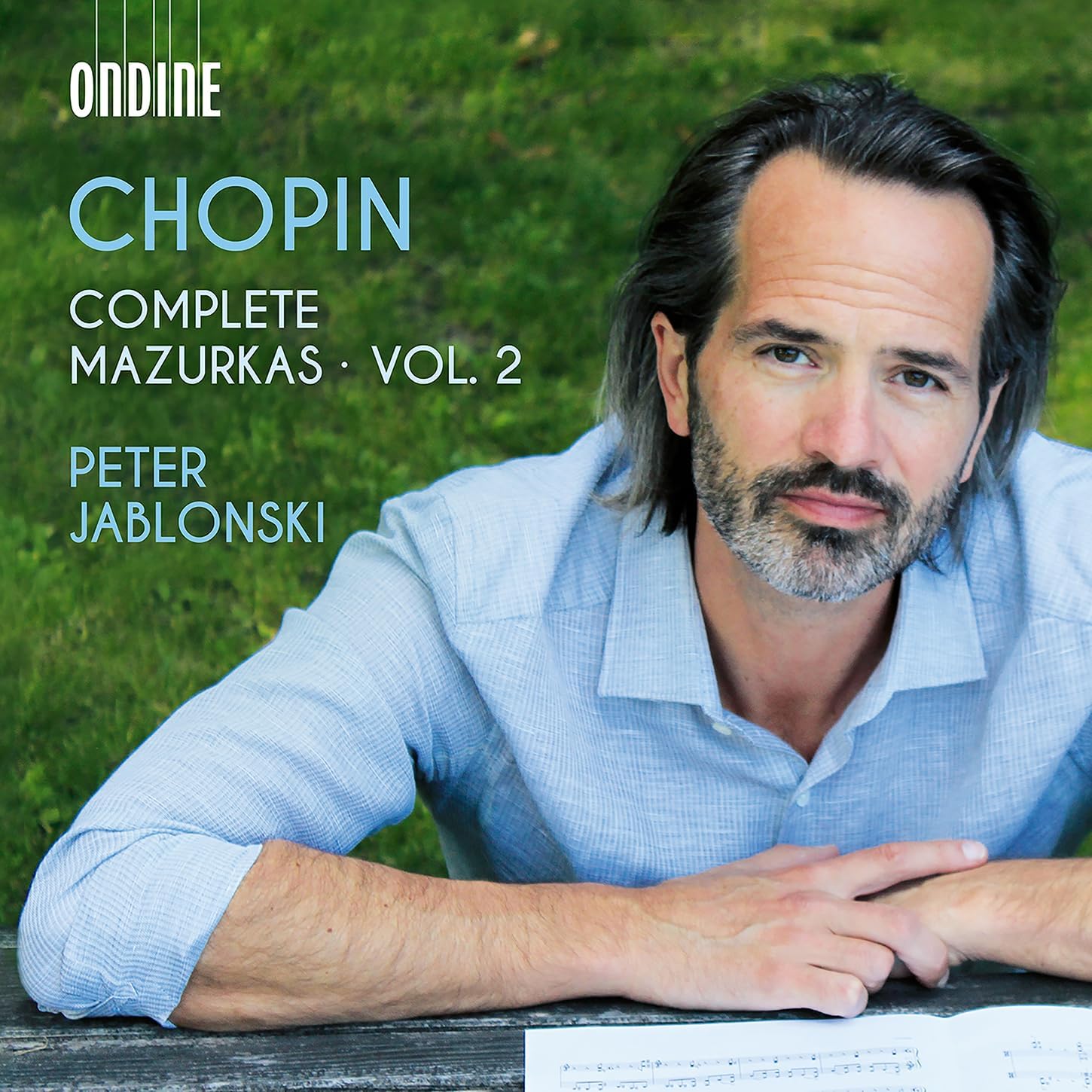 The Mazurkas, by contrast, are much shorter, simpler in their construction, less emotionally wrought and with folkish origins, transformed by Chopin into high-art bonbons. This is volume 2 of Peter Jablonski’s Complete Mazurkas – volume 1 came out in 2022 and on a quick listen through pretty much everything I would say about volume 2 also applies to 1. The Mazurkas were not created as a single set, but were published in groups of three or four at a time, emerging steadily throughout his career. On one reading they are short, inconsequential salon pieces, many of only moderate difficulty, and without the long-breathed melodies of the Ballades or Nocturnes. But on another they are some of Chopin’s most intimate and personal statements of his feelings as an émigré composer towards his abandoned homeland.
The Mazurkas, by contrast, are much shorter, simpler in their construction, less emotionally wrought and with folkish origins, transformed by Chopin into high-art bonbons. This is volume 2 of Peter Jablonski’s Complete Mazurkas – volume 1 came out in 2022 and on a quick listen through pretty much everything I would say about volume 2 also applies to 1. The Mazurkas were not created as a single set, but were published in groups of three or four at a time, emerging steadily throughout his career. On one reading they are short, inconsequential salon pieces, many of only moderate difficulty, and without the long-breathed melodies of the Ballades or Nocturnes. But on another they are some of Chopin’s most intimate and personal statements of his feelings as an émigré composer towards his abandoned homeland.
On a technical level, rubato is at the heart of this music. And Peter Jablonski uses the effect sparingly but to great effect (as does Shirinyan). I have a hunch that to a modern listener Chopin’s own playing would sound hopelessly affected as fashions and taste change out of all recognition over time. To this listener in this year, both pianists have a just-enough-but-no-more approach to rubato. Jablonski (a Swede of Polish descent) finds a pleasingly rustic sound in no.34, elsewhere, such as no.31, there is real warmth to the playing – a mixture of polish and Polish. I particularly love the bewitching no.47 and am very moved by the chromatic wanderings of no.49, written just weeks before Chopin’s death at the age of 39, far from his beloved homeland. - Bernard Hughes
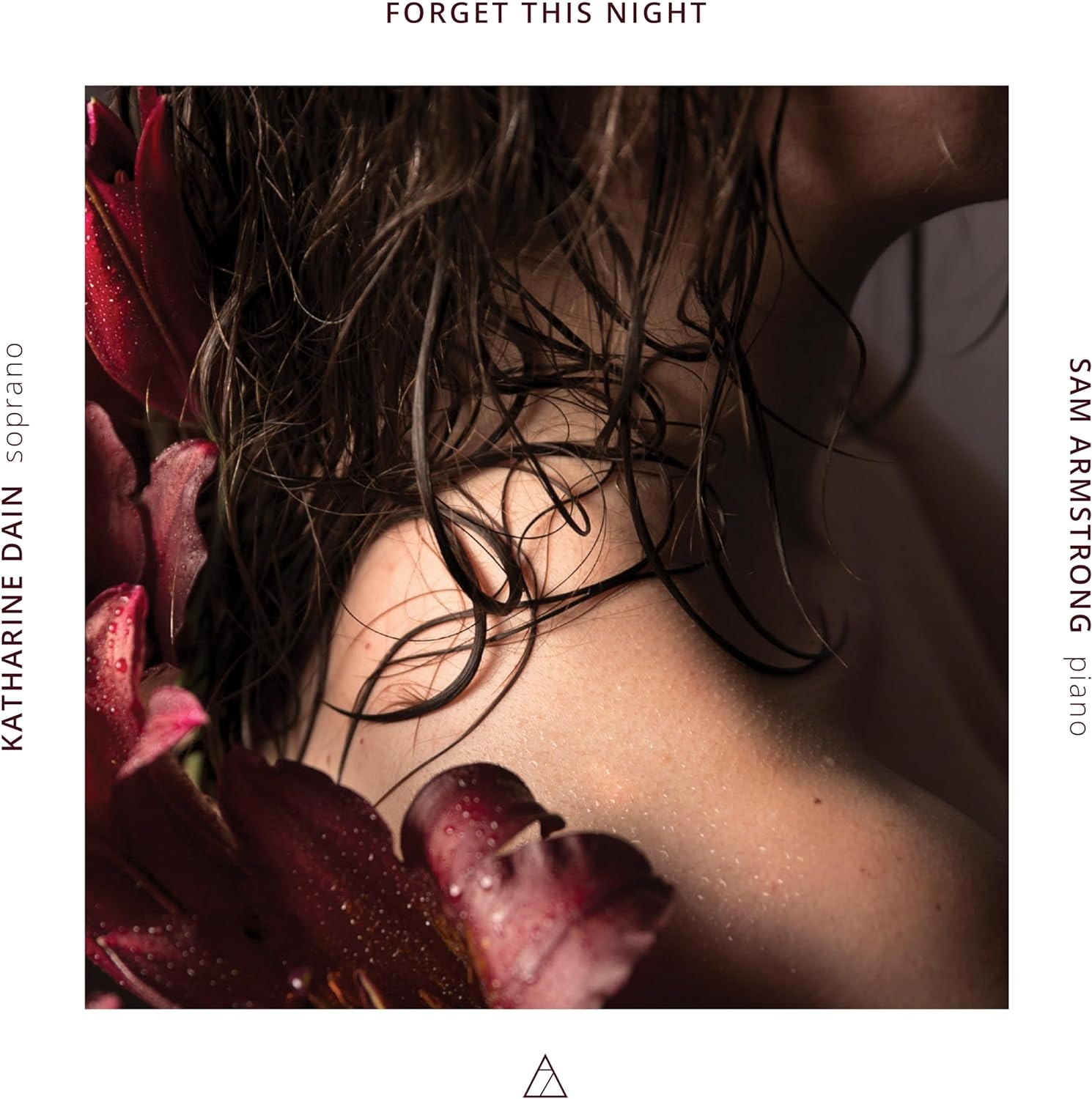 Forget this Night Katherine Dain (soprano), Sam Armstrong (piano) (7 Mountain Records)
Forget this Night Katherine Dain (soprano), Sam Armstrong (piano) (7 Mountain Records)
This song collection’s title comes from a poem by the Indian writer Rabindranath Tagore. Intriguingly, two settings are included, one (in Polish) by Grażyna Bacewicz, the other (in German) by Karol Szymanowski. Bacewicz’s is terse and declamatory, Szymanowski’s tender and ruminative. Soprano Katherine Dain’s recital disc contains some exquisite music, and you’re continually wondering why so many of these songs aren’t better-known. The Bacewiecz and Szymanowski numbers are heard alongside numbers by Lili Boulanger, whose song cycle Clairières dans le ciel is the most substantial work included. Boulanger completed the work in 1914, setting thirteen texts by the poet Francis Jammes on themes of love, loss and regret. The smallest details are mirrored in the music; we hear a heart fluttering “like an exhaustible fountain”, and a lover’s “passionate gaze” is set to rapturous, dreamy music. None of which prepares us for the devastating closer, an eight-minute lament compared by Dain to an operatic mad scene, her narrator “with nothing more” to sustain her. Dain, idiomatically accompanied by pianist Sam Armstrong, is magnificent, alternately consolatory and stentorian, her voice never sounding strained when she’s at full tilt. Sample her in the album opener, Boulanger’s “Attente”, a sensual Maeterlinck setting. Or in the heart-breaking closer, a previously unrecorded late fragment found in a Boulanger sketchbook, an unaccompanied Dain bemoaning the physical pains she’s suffering, asking “why do I always feel bad/it’s not fair”.
The four Bacewicz songs make for an interesting contrast, their language clear, sharp and direct (Bacewicz studied with Nadia Boulanger in the 1930s). Dain and Armstrong bring them to life – “Mamido”, setting a 10th century Arabic text, is irresistible. Five numbers by Szymanowski are lush, perfumed treats, the final “Lean silently over the cradle” the most striking, seductive lullaby you’ll hear. A marvellous recital, in short. Texts and translations are included (those from French and German made by Dain, who also contributes a fascinating sleeve note. Good sound too.
 Verismo: Preludi e Intermezzi Royal Liverpool Philharmonic Orchestra/Domingo Hindoyan (Onyx)
Verismo: Preludi e Intermezzi Royal Liverpool Philharmonic Orchestra/Domingo Hindoyan (Onyx)
Wow. This disc is a blast, the sort of collection you might have found on a budget-label LP back in the day. Who else remembers Classics for Pleasure, Fontana or Pye Golden Guinea? This being 2023, we’re not dealing with dodgy engineering and fallible playing from a lesser-known outfit; Versimo is superbly engineered and boasts superb orchestral playing from Domingo Hindoyan’s energised Royal Liverpool Philharmonic Orchestra. This selection of familiar and unfamiliar Italian operatic preludes and intermezzi is a reminder of how rarely these pieces are performed outside opera houses now, though you might hear some of them tackled by youth orchestras or as Proms encores.
You might struggle to recall how the main theme of the “Dance of the Hours” from Ponchielli’s Gioconda goes, but within seconds of pressing play it’ll come flooding back. It’s difficult not to hum along, and don’t the opening bars sound like Mahler 4? The Act III Intermezzo from Puccini’s Manon Lescaut is a knockout, with radiant upper string playing – Domingo’s Liverpudlians making the case for its six minutes as among the most moving in all music. Intermezzi from Mascagni’s L’Amico Fritz and Cavalleria Rusticana are sweetly done, the latter’s hushed opening exquisite. Frothier extracts from Wolf-Ferrari’s Susanna’s Secret and The Jewels of the Madonna are a lot of fun. The Puccini items are the best though, a reminder of what a superb orchestral composer he was, and how sumptuous his music can sound when heard outside of a dry theatre acoustic. The closer, the prelude to Act II, Part 2 of Madame Butterfly, glows. Listen out for the bird whistles.

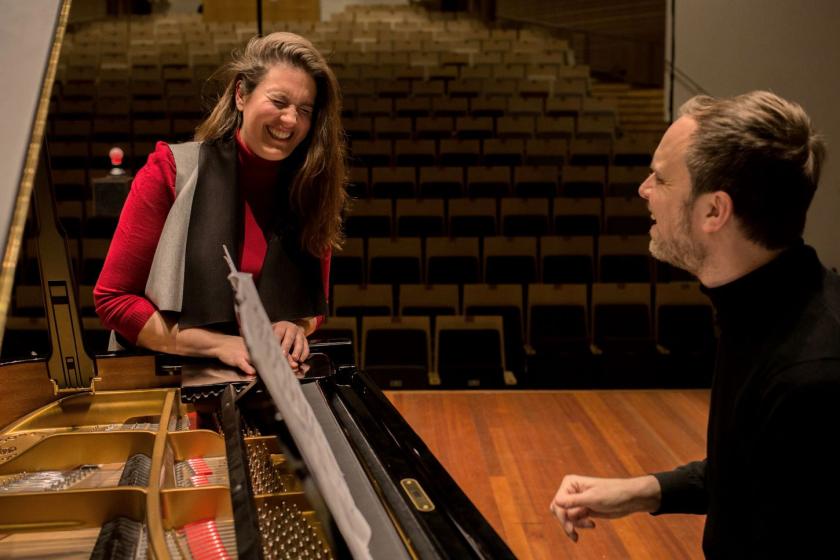













Add comment